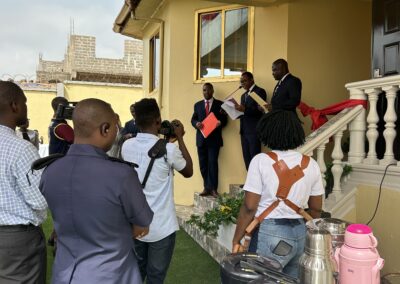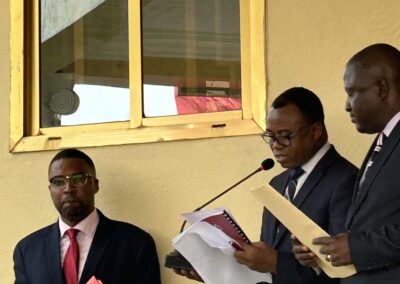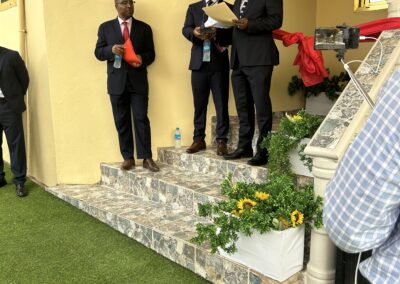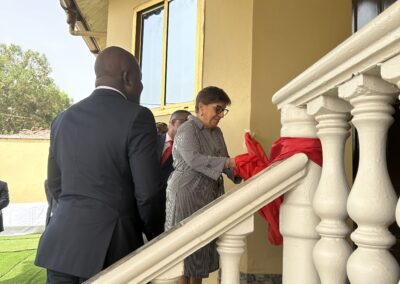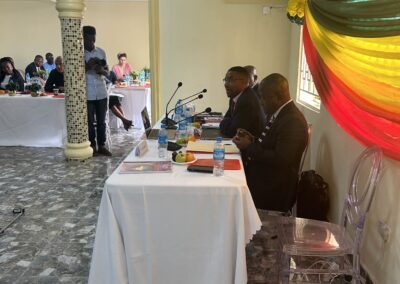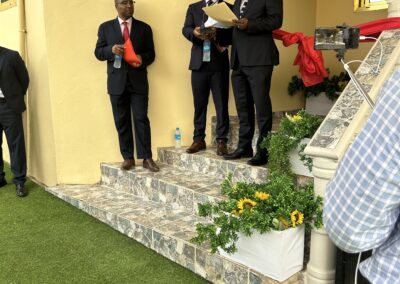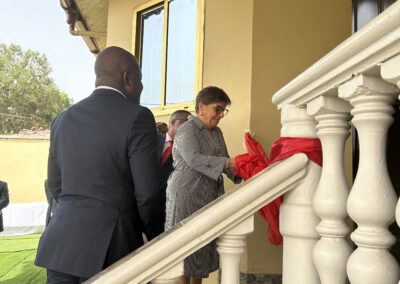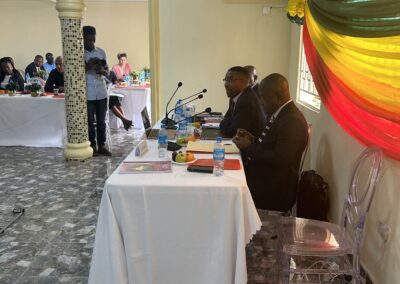Wednesday, 6 March 2024, 09:00 – 13:00 GMT, 1 Abib Drive, SS Camp, Sierra Leone, Freetown
Having operated internationally for three years, CILPA was proud to announce the official opening of its own offices in Freetown, Sierra Leone, on 6 March 2024 from 9:00 to 13:00 at 1 Abib Drive, SS Camp, Freetown, Sierra Leone.
Incorporated in 2021, the Center for International Law and Policy in Africa (CILPA), with a pan-African mandate that is inclusive of both Africans on the continent and its rich diaspora, is an opportunity for the think tank to contribute to the scientific promotion of African perspectives on international law issues of relevance to African States and their peoples. Core to CILPA’s mandate is the belief that independent scientific research that bridges theory and practice offers meaningful opportunities for policy-oriented solutions in the process of codification and progressive development of international and African regional law.
In CILPA’s short existence, though often operating with limited resources, the think tank has already proudly undertaken significant projects and hosted conferences, workshops, and seminars that put African and global south international legal issues on the map, from Freetown to Miami, to New York. The topics the events have addressed span a wide range of issue areas in international law: from international criminal law and international human rights issues to questions of private international law and the recognition of foreign judgments and arbitral awards, State responsibility, regional and universal codification, universal criminal jurisdiction, and the use of force in international law. They have addressed, from an African perspective, the work of key international institutions such as the International Criminal Court, the United Nations, and the African Union. In addition to the events, CILPA has convened multiple projects ranging from the African Court Research Initiative, the International Criminal Court and Africa project (ICC-Africa), to the most recent ongoing project on an international legal framework for reparations for historic injustices suffered by people of African descent.
The Grand Opening was well-attended by members/representatives of civil society, academia, the judiciary, the Sierra Leone government, and foreign embassies. Prof. Charles C. Jalloh, CILPA’s founder, gave the welcoming address, followed by a keynote address from Mr. Alpha Sesay, the Deputy Minister of Justice of Sierra Leone, who was introduced by Hon. Judge Osman Keh Kamara, of the International Tribunal for the Law of the Sea and Member of CILPA’s Board of Trustees. CILPA was honoured to be joined by Hon. Justice Vivian Solomon, Justice of the Supreme Court of Sierra Leone, who perfromed the ribbon cutting.
In addition to the opening ceremony, CILPA also launched Occasional Papers on Bringing the African Perspective to the ICC Reform Discussion, to showcase the type of work that CILPA undertakes.
CILPA, with the funding of the Open Society Foundation, launched an Africa and the International Criminal Court Project in 2022, as part of which three consultants were commissioned to conduct research into the experience of African States with the International Criminal Court. The aim was to identify the key African government concerns about the ICC and to propose strategic recommendations to feed into the ongoing ICC reform process. CILPA hosted a successful two-day workshop in Freetown in October 2022. The workshop brought together the consultants with invited legal experts, including academia, civil society, government representatives, and practitioners to exchange views on how the reforms could be carried out to ensure greater inclusivity of African concerns. The final papers containing reform recommendations were published by CILPA in September 2023 and in a special edition of the African Journal of International Criminal Justice (2024) – a CILPA journal. The papers were launched in New York, USA on the margins of the International Criminal Court’s Assembly of States Parties meeting in December 2023. As a Sierra Leonean-based organisation and with the original workshop that contributed significantly to the consultants’ research having been in Freetown, it seemed fitting that the consultants’ papers were also launched in Freetown. The authors of the papers presented their work and engaged in a substantive discussion with the audience.

